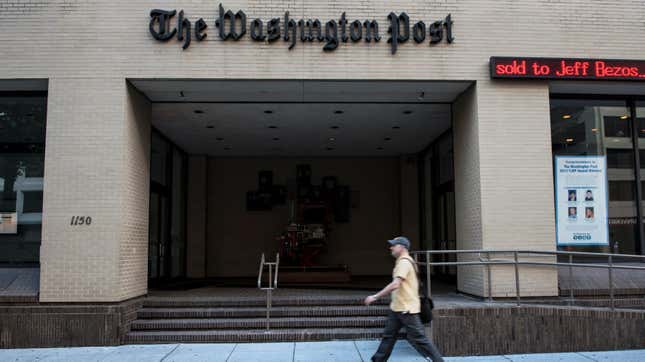The Post Banned One Reporter From Covering Sexual Assault, But Let an Accused Harasser Keep Working
Felicia Sonmez was barred from reporting on sexual misconduct as a survivor of assault, but the same wasn't true of her coworker, an alleged harasser
Work

Washington Post reporter Felicia Sonmez’s bombshell lawsuit against the paper—accusing leadership of gender discrimination for barring her from reporting on sexual misconduct as an assault survivor—alleged many cruel ironies.
One of the most galling, however, was that while editors banned Sonmez from covering certain stories due to her identity as a survivor, they seemed to place no such restrictions on a male colleague of Sonmez’s, who had been accused of sexual harassment.
-

-

-

-

-

-

-

-

-

-

-

-

-

-

-

-

-

-

-

-

-

-

-

-

-

-

-

-

-

-

-

-

-

-

-

-

-

-

-

-








































